From the downright disgusting to the dangerous, these foods can be eaten all over the world except in the United States. Because only in America is it legal to own a gun, but can illegal to eat certain German chocolate.
1. Kinder Surprise Chocolate Eggs

Photo courtesy of @fi_bird on Instagram
Origin: Germany
Why it’s banned: The “surprise” in Kinder eggs is a small toy in a plastic capsule that is in the center of the chocolate. Any food that includes anything that is inedible was banned from the United States by federal law in 1938. But despite this law, people still try to smuggle the candy across the border. Thousands of chocolate eggs have been confiscated by U.S. customs, and there have been reports of people having been detained and fined $1,200 per egg. (Make sure you hide them really deep in your luggage. Not speaking from personal experience. I swear.)
2. Casu Marzu

Photo courtesy of @jenniferlaw92 on Instagram
Origin: Italy
Why it’s banned: The first time I had seen this cheese, I actually thought that it was a hollowed out loaf of bread, but I could not have been more far off. It is actually Pecorino cheese that has been purposely infested with maggots to promote fermentation. The maggots eat and lay their eggs in the cheese until it becomes ready to eat. People actually prefer to eat it while the maggots are still alive and crawling within the cheese (Yum?).
3. Ackee
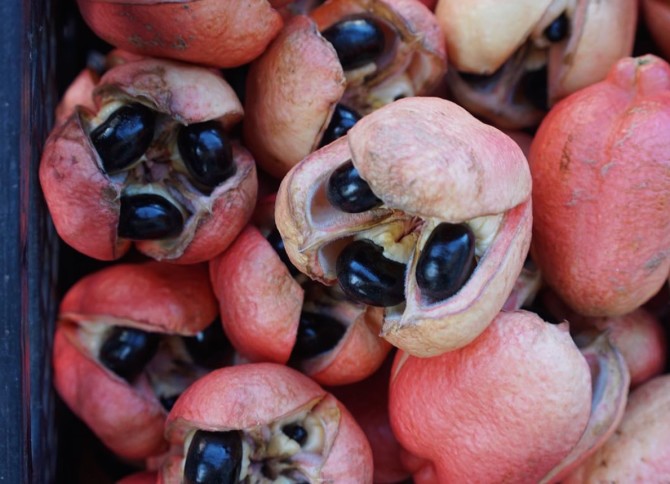
Photo courtesy of @marleynatural on Instagram
Origin: Jamaica
Why it’s banned: This national fruit of Jamaica could be extremely dangerous if not prepared properly. It has very high levels of hypoglycin A and B, which could cause coma or death when eaten. It was banned from the US in 2000, but manufacturers are still able to sell it either canned or frozen, and the FDA monitors it closely.
4. Haggis
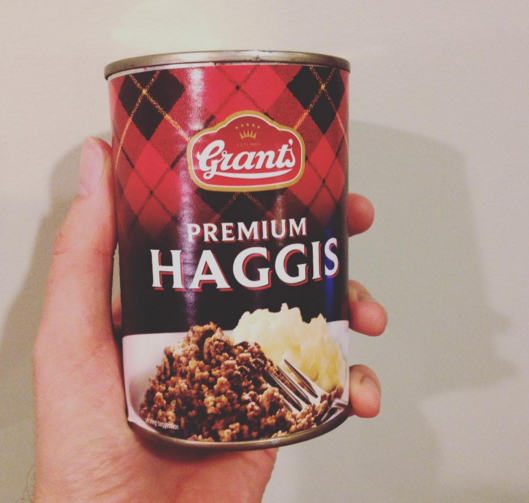
Photo courtesy of @louisncampbell on Instagram
Origin: Scotland
Why it’s banned: Haggis is a savory British pudding made of sheep organs incased with onion, spices and oatmeal in the animal’s stomach. Haggis contains sheep lung, which violates the United States’ federal food safety regulations. This ban on food containing lungs has been in effect since the 1970’s.
5. Fugu
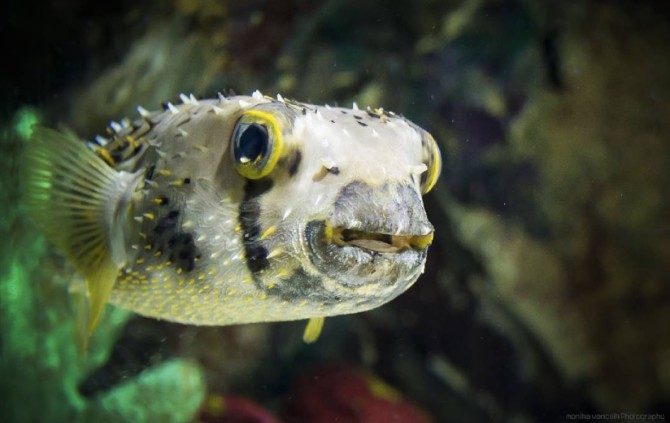
Photo courtesy of @moni.vancsik on Instagram
Origin: Japan
Why it’s banned: This puffer fish technically isn’t actually illegal in the United States, but you need a license to cook it. This is because this fish contains lethal amounts of a poison called tetrodotoxin, and there is enough of it in one fish to kill about 30 people. Chefs must train for 2-3 years to gain the license to cook this fish making it incredibly expensive (some dishes go for $200), but 10,000 tons of fugu are still eaten annually in the U.S.
6. Shark Fins
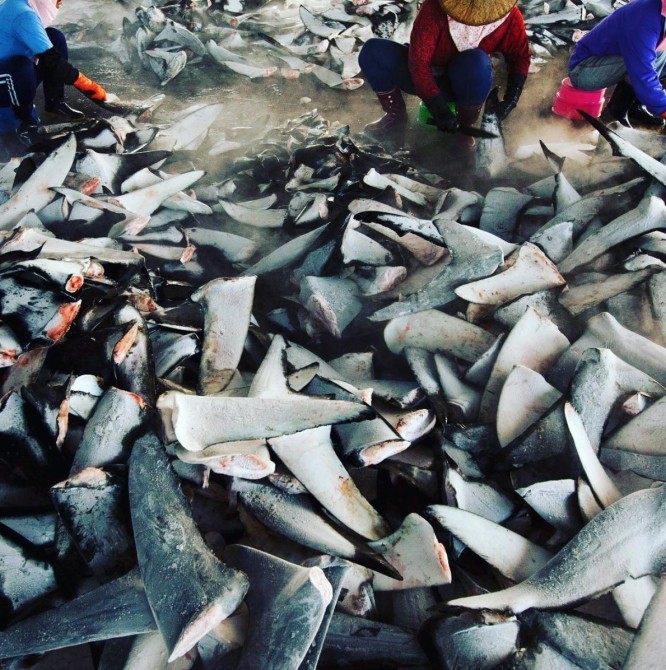
Photo courtesy of @ryanjhong on Instagram
Origin: China
Why it’s banned: The overfishing of sharks for their fins has contributed to the rapidly depleting population of sharks worldwide. The United States introduced the Shark Finning Prohibition Act of 2000 and the Shark Conservation Act of 2010 in an attempt to save the sharks. These bans on fishing have improved the decline of the species by 90 percent since these laws were put into effect.
7. Foie Gras

Photo courtesy of @alphajourneycs on Instagram
Origin: France
Why it’s banned: The process of making foie gras is highly controversial, as it involves aggressively force-feeding geese in order to fatten their livers as much as possible. Its consumption and import is legal in the rest of the U.S., but it has been illegal in the state of California since 2012. Foie gras has also been linked to serious human health risks implicated by its consumption, including secondary systemic amyloidosis, a buildup of abnormal proteins in tissues and organs.
8. Mangosteen
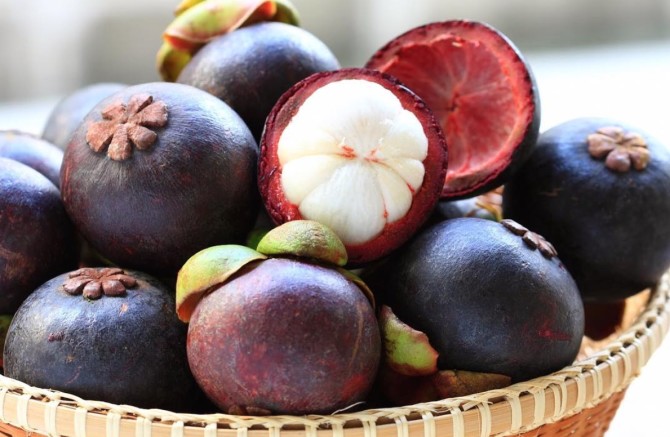
Photo courtesy of @chaddiel on Instagram
Origin: Southeast Asia
Why it’s banned: Mangosteen is a fruit that is highly coveted for its many healing properties that have been shown to successfully treat numerous diseases in Asia for thousands of years. Until recently, it has been illegal to import it as a fresh fruit in the U.S. due to fears that it could harbor the Asian fruit fly, something that could destroy U.S. crops. Now importation is permitted, but it must be controlled and irradiated by the USDA.
9. Beluga Caviar
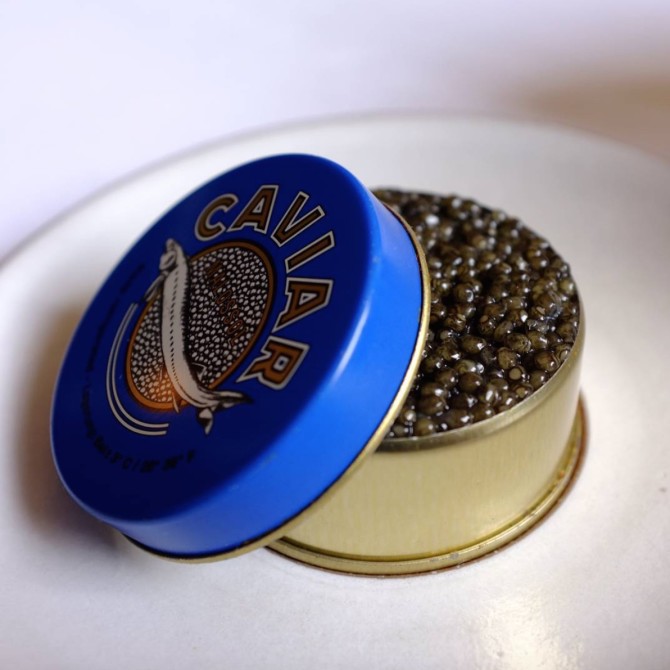
Photo courtesy of @tastecaviar on Instagram
Origin: Countries around the Caspian Sea
Why it’s banned: Beluga caviar is the most expensive type of roe sold around the world. Due to overfishing worldwide, belugas have been considered critically endangered. The United States began banning imports of beluga caviar in 2005 to try to protect the species.
10. Horse meat
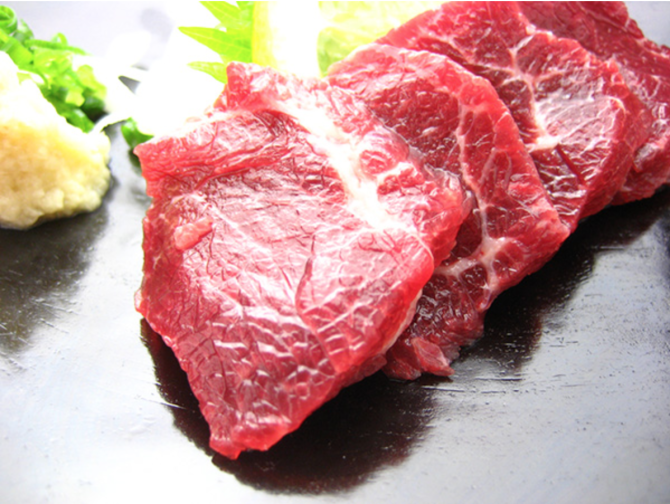
Photo courtesy of Earth Excursions
Origin: Several countries worldwide
Why it’s banned: Although it is perfectly legal to consume horse meat, slaughtering horses is illegal in the U.S. The various methods used in horse slaughtering are brutal and incredibly violent. Horses that are raised for their meat are pumped with an arsenal of dangerous drugs and chemicals that affect their blood, making the meat unhealthy for human consumption. The meat has been linked to cancer, aplastic anemia and birth defects.


